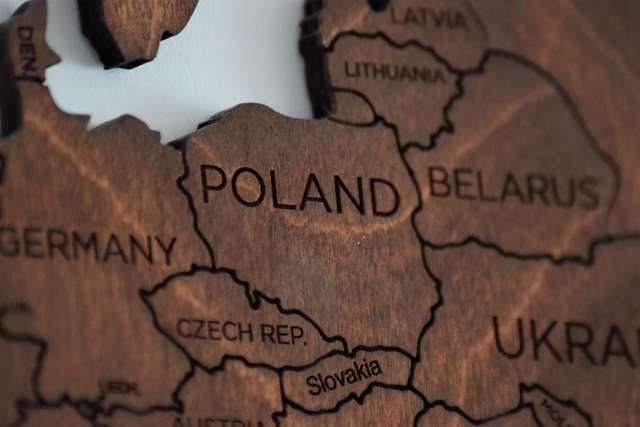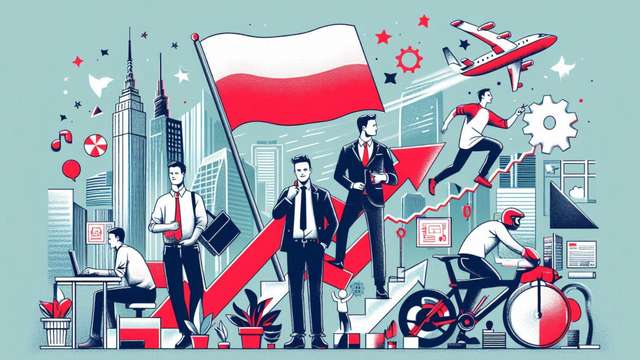
Will the post-pandemic world revert to its pre-pandemic state? No. Significant changes have taken place on too many levels, from which appropriate conclusions have been drawn. They will bring serious changes, also in sectors such as production and supplies.
Table of Contents
There is nothing to cheat. The pandemic and the phenomena that accompanied it have clearly shown that Chinese domination in the sphere of production can very quickly begin to reflect on the whole world with hiccups. In peaceful times, little attention was paid to it, but the threat of the coronavirus, along with its consequences, gave rise to serious reflection on the future.
Truth in a time of crisis
We have written about it many times in our pages. Today, of course, China is the "factory of the world", which during the pandemic and the great energy crisis began to deal cards internationally according to its own needs. Serious limitations in production, the closure of steel mills and mines, which ultimately led to shortages, as well as an increase in the prices of necessary metals.
Effect? Production stopped at many plants on other continents that were dependent on supplies from the Great Wall. The supply chains themselves are an issue for a separate discussion, because it turned out that what had been almost tailored so far, it started to creak at the seams in a very short time. Sea freight prices increased up to eightfold, and photos of huge queues of ships outside of shipping ports made headlines and the covers of leading economic newspapers.
When we wrote „Canceled Christmas," some people thought it was too strong, almost a clickbite. However, as it turned out, the billions of dollars trapped on container ships were not a fairy tale at all, but rather a painful fact. And although President Joe Biden himself joined the action along with his administration, and the working time in ports was significantly extended, many goods still did not reach their destinations on time. - We have already opened our gates wider, but it does not matter, since we do not have adequate support from truck drivers. There is simply nowhere to take this cargo, commented Ed DeNike, president of SSA Containers late last year.
Fight for a piece of cake
All these events have made more and more talk about moving part of the production from China to other regions. India wants to carve its piece of cake in global terms, the United States has already announced the creation of its own factories producing chips, and when it comes to the Old Continent, the role of the "factory of Europe" can be taken over by Poland, which, according to research conducted by the Polish Economic Institute, is to measurably benefit on the transfer of part of the production from China.
The aforementioned institute prepared the report "EU Strategic Autonomy: Possibilities of Relocation of Production, Import Relationships and Opportunities for Poland". It shows that Warsaw can benefit most from the production of accumulators and batteries, as well as computer and telecommunications equipment.
- The most likely scenario of changes in global supply chains is the diversification of production inside Asia. We can already observe the first symptoms of this phenomenon, although still not on a scale that would reduce China's share in global trade in the short term. Europe may also benefit from relocation, said Marek Wąsiński, PIE's foreign trade team manager.
A chance for Poland
Here, to the PIE research, one should also add the analyzes of the European Commission regarding the import of critical products. What is the result of it? - The European Commission has identified 137 critical products in imports of the European Union within the four most sensitive ecosystems: renewable energy sources, energy-intensive industry, health as well as digitization and electronics - added Wąsiński.
- In Polish imports, the PIE survey revealed 156 such products. The most desirable for partial relocation of supply chains include: drugs, medical devices, hydrogen, active pharmaceutical substances, microelectronics, batteries and accumulators, and offshore wind energy. At the same time, the stages of the value chains that have the greatest chance of relocation, i.e. the production of raw materials and semi-finished products and the production of final products, are different from the stages most desirable for relocation with higher added value, such as design and after-sales services - he concluded.
Yes, if...
There is, however, one, but very serious "but" in the whole matter, which casts a shadow on all forecasts. Poland and other countries in the Central and Eastern Europe region do not have a source of raw materials from the critical categories independent of China. If you add this to the high costs associated with climate and environmental protection standards, as well as the increasingly aging populations in this region, the whole plan does not appear in such pink colors anymore.
However, Poland may benefit from these global changes. According to the Polish Economic Institute, for this to happen, specific conditions must be met.
The first one is, of course, increasing the attractiveness of our country in terms of relocation of production. This, in turn, can be achieved thanks to qualified staff or increasing expenditure on research and development of new technologies. One should also attract foreign students from very specific fields of study, as well as skilfully use the support of the European Union. Is Poland currently able to meet these requirements? We will find out about it soon






